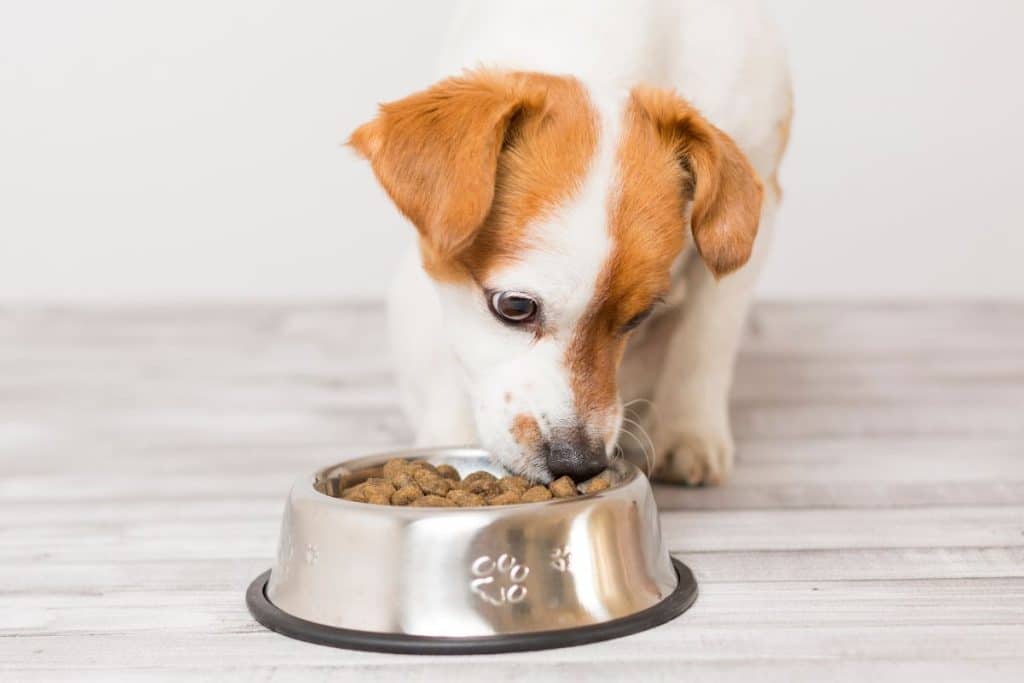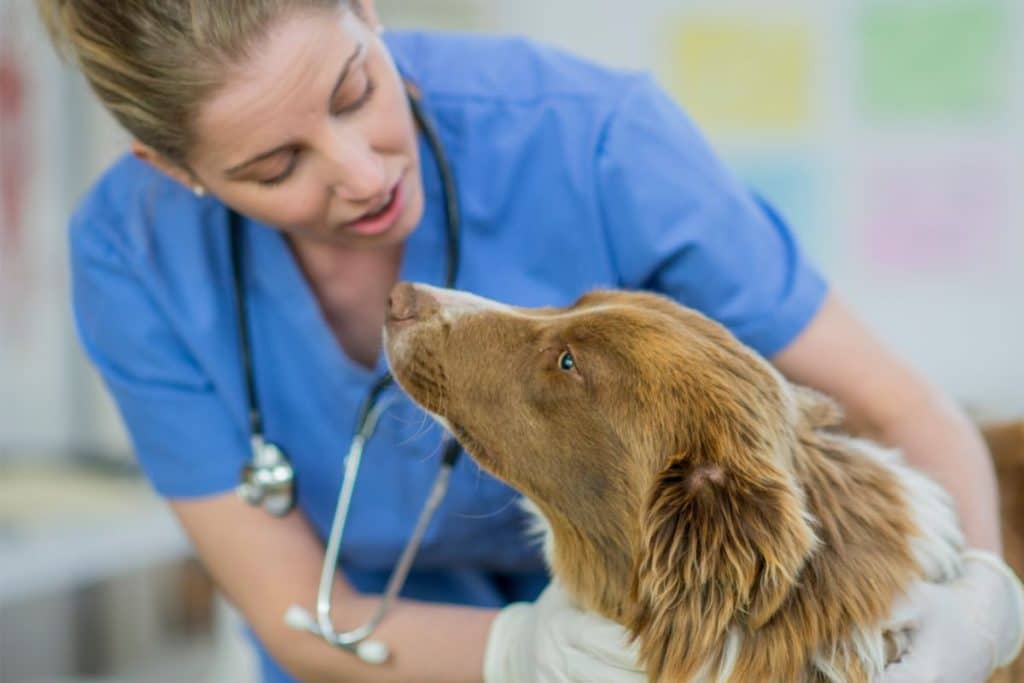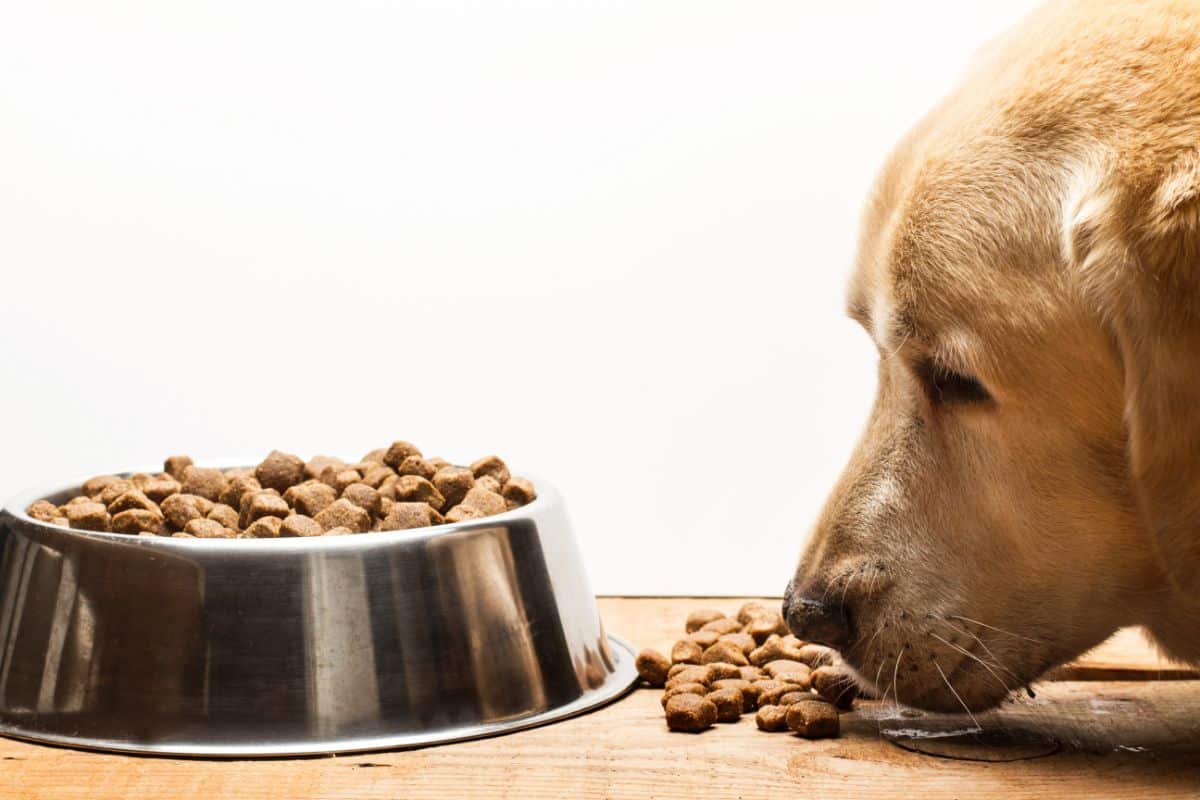If you’re a dog owner, you’ve likely experienced your dog’s insatiable appetite. While a hearty appetite is not always a cause for concern, overeating can lead to several health problems that may shorten your dog’s lifespan.
In this article, I’ll explore the causes of overeating in dogs and provide tips on preventing and addressing this problem. We’ll delve into the behavioural and medical reasons behind overeating and discuss the role of feeding schedules, portion control, and exercise in keeping your dog healthy and happy.
Many of you have asked me if dogs even get full in the first place. Yes, they do and here’s what you need to know about it. And if your dog is eating too much, there must be a reason.
Understanding the Causes of Overeating in Dogs
1. Lack of Physical Activity
One of the dogs’ most common causes of overeating is a lack of physical activity. Dogs need regular exercise to maintain a healthy weight and prevent boredom. If your dog is not getting enough exercise, it may turn to food as a source of entertainment, leading to overeating.
2. Feeding Habits
Feeding habits can also contribute to overeating in dogs. Many dog owners make the mistake of free-feeding their pets, leaving food out all day.
This can lead to a lack of structure around mealtimes, and your dog may need a clearer understanding of when to eat.
Read More: Best Slow-Feeder Dog Bowls
Additionally, hunger could indicate that the body needs nutrients, minerals, hydration or energy. If your dog is always hungry and never looks full, it could be because its diet needs to include something crucial. Common nutrients missing from low-quality foods are vitamins, minerals, protein, fat and fibre.
3. Medical Conditions
Dogs can overeat due to underlying medical conditions that affect their appetite. If you notice that your dog is constantly begging for food or eating excessively, it is essential to take them to a veterinarian to rule out any underlying medical problems.
A. Hormonal imbalances
Hypothyroidism can cause dogs to gain weight and always feel hungry. It affects the thyroid gland, which regulates metabolism. Diabetes can do that too.
Cushing’s Disease causes the body to produce too much glucocorticoid, which leads to an increased appetite. Another medical condition is malabsorption.
It’s a condition in which the body cannot properly process the nutrients in food, leaving them to think they haven’t had enough…because they haven’t.
B. Digestive Disorders
Dogs with digestive disorders may overeat to compensate for the poor absorption of nutrients. Dogs with exocrine pancreatic insufficiency (EPI) have difficulty digesting food, so they don’t get enough nutrients from their diet.
Other digestive disorders, such as inflammatory bowel disease (IBD) and gastrointestinal infections, can also affect a dog’s appetite.

Some worms can hijack your dog’s digestive system and remove nutrients. Although worms usually have the opposite effect where it robbing them of their appetite, it is still possible that they can cause pooches to always have the munchies.
If your dog’s eating habits have changed drastically and it’s out of the ordinary for them to never appear full or always hungry, we recommend taking them to see a vet to be checked out.
C. Health Conditions that Affect Appetite
Liver disease can cause dogs to feel hungry all the time due to the body’s inability to store and release energy efficiently. Kidney disease can also affect appetite, leading to weight loss or overeating.
It is crucial to understand that some medical conditions may require lifelong management. Therefore, work closely with your veterinarian to ensure your dog gets the right treatment and care.
Read More: Why is my dog never full? Do dogs ever get full?
4. Behavioral Issues
It’s common for a dog to turn to food for comfort, much like humans do. Unfortunately, this can lead to overeating and, ultimately, obesity, harming a dog’s health.
A. Boredom and Lack of Exercise
Dogs need exercise and mental stimulation to stay physically and emotionally healthy. They may turn to food to cope when they don’t get enough. Dogs can become bored, anxious, or stressed when left alone for long periods. This leads to destructive behaviours, including overeating.
To combat boredom, try to provide your dog with plenty of activities and toys to keep them occupied. Puzzle feeders, treat-dispensing toys, and games like hide-and-seek can provide mental stimulation.
B. Anxiety and Stress
Just like humans, dogs can experience anxiety and stress, and these emotions can lead to overeating. Separation anxiety, fear of loud noises, and changes in routine or environment can all trigger anxiety in dogs.
Stressful events, such as visits to the vet or unfamiliar social situations, can also cause dogs to seek comfort in food. If you suspect your dog is experiencing anxiety or stress, it’s important to address the root cause of the problem.
5. Bad Training / Force of Habit
Do you find yourself giving in too easily to puppy dog eyes, throwing scraps from the table, or chucking them a treat if they beg?
If your dog knows that when they act hungry (even if they’re not), they will get some food, then you can expect them to keep doing it repeatedly until you stop. This can lead to overfeeding and, ultimately, a few health problems.
There’s an easy way to stop this behaviour. Stop giving them treats without making them work for them. Feed your dog at regular intervals (as mentioned above), and any extras can only come from a training session or when they’ve been a good boy/girl.
How to prevent your dog from overeating?

1. Feeding Schedules
Feeding your dog simultaneously daily can help regulate their appetite and prevent them from snacking throughout the day. Most dogs do well with two meals daily, but some may require more or less depending on their size, age, and activity level.
2. Portion Control
Measure your dog’s food to ensure they receive the appropriate amount for their size and activity level. Overfeeding your dog can lead to obesity and other health issues.
3. Nutritional Value of Dog Food
Choose a high-quality dog food that meets your dog’s nutritional needs. Look for a food formulated for your dog’s age, breed, and activity level. Avoid feeding your dog table scraps or human food, which can lead to overeating and weight gain.
4. Alternative Feeding Options
Puzzle feeders, slow feeders, and feeding toys can help slow down your dog’s eating and prevent them from consuming their food too quickly. This can also help prevent digestive issues and other health problems.
In addition to their regular meals, providing your dog with healthy snacks can help keep them feeling full and prevent overeating. Look for low-calorie and protein treats, such as small pieces of cooked chicken or carrot sticks. Avoid giving your dog treats high in fat, sugar, or salt, as these can contribute to weight gain and other health problems.
5. Exercise
Exercise is an important aspect of appetite control in dogs. Regular physical activity can help regulate your dog’s appetite and prevent them from overheating.
Ensure your dog gets enough exercise daily to keep them healthy and fit. This can include daily walks, playtime in the backyard, or other physical activities your dog enjoys.
Read More: A Beginner’s Guide to Best Dog Treats UK
How to correct behavioural issues in dogs?
Step 1: Identifying the root cause of the problem.
If your dog is overeating due to boredom and lack of exercise, you may need to increase the training and playtime. If your dog is overeating due to anxiety or stress, you may need to address the underlying cause of the anxiety.
Step 2: Start behavioural training.
For bored dogs, you can redirect their attention by teaching them new tricks or providing puzzle toys to keep them occupied.
If your dog is overeating due to anxiety or stress, you may need to work with a professional dog trainer or behaviourist to help your dog learn coping mechanisms.
Step 3: Managing Anxiety and Stress
One option is to provide your dog with a comfortable and secure environment, with a designated area for rest and relaxation. You may also consider providing your dog with calming aids like aromatherapy or pheromone sprays.
In some cases, medication prescribed by a veterinarian may also be necessary to manage anxiety or stress.

Seek Veterinary Care If Needed
It may be time to seek veterinary care if you’ve tried everything but to no avail.
A veterinarian can provide valuable guidance regarding managing your dog’s diet and addressing any underlying medical conditions. They can also help determine the best action for addressing behavioural issues and provide referrals to professionals if necessary.
Medical Interventions: If your dog is overeating due to a medical condition, your veterinarian may recommend medical interventions to help manage the issue. For example, dogs with hormonal imbalances may require medication or hormone therapy to help regulate their appetite.
Working closely with your veterinarian to manage your dog’s diet and overall health is essential. With their guidance, you can help ensure your dog maintains a healthy weight and a happy, active lifestyle.




